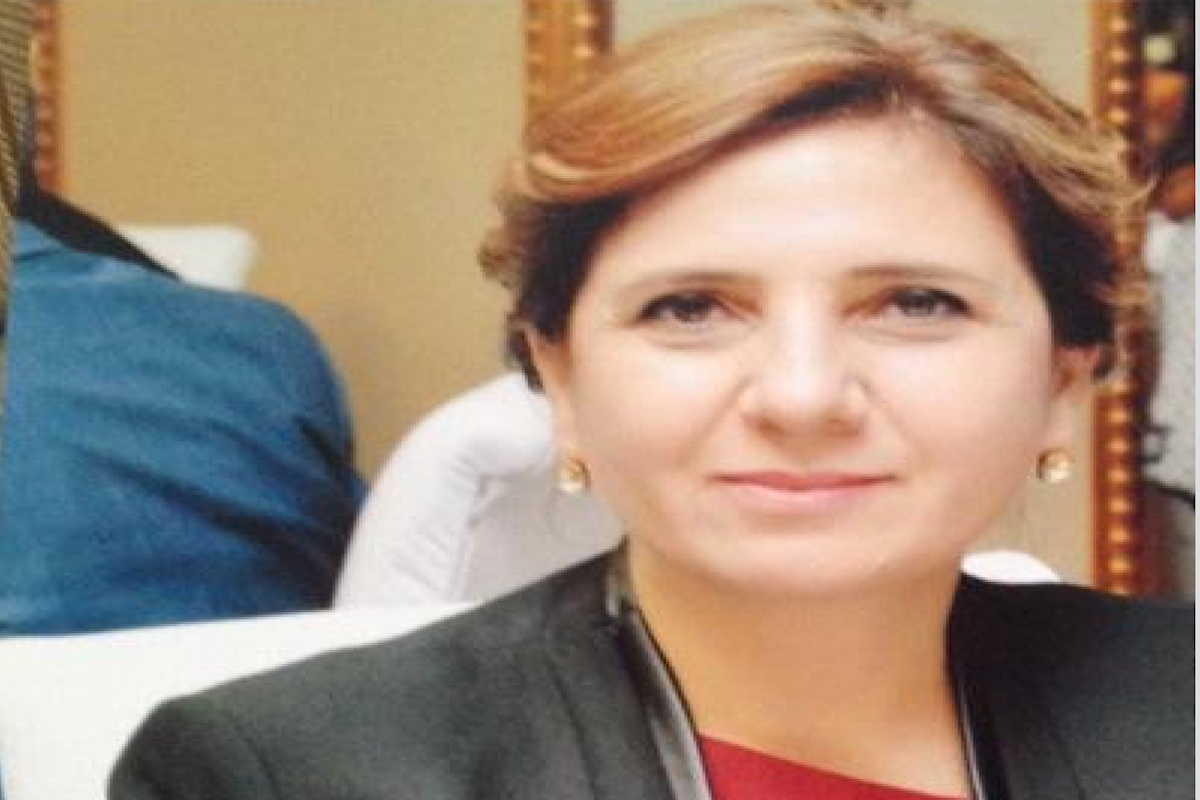Neslihan Ekinci, a former judge in İstanbul province has been held in solitary confinement in prison has been exposed to inhuman treatment in jail according to her daughter Zeynep Rana Ekinci.
According to a report published by Yeni Asya daily, Zeynep Rana Ekinci told that her mother was first dismissed from her position and arrested following a controversial coup attempt on July 15, 2016 as part of the Turkish government’s post-coup witch hunt targeting the alleged followers of the Gülen movement. Her mother also served as the general secretary of the top judicial body, the Supreme Board of Judges and Prosecutors (HSYK), in the past.

Daughter Ekinci, who is trying to make his voice heard from social media, told that her mother has been suffering from a severe trauma along with being on the verge of going mad. Ekinci also stated that her mother has been imprisoned for more than one year despite the fact that there is still no bill of indictment by noting that prison administration did not even let her mother to read a book.
Her father Hüseyin Ekinci, former chief reporter of the Constitutional Court, has also been kept in prison for more than a year. Zeynep Rana Ekinci told that she has been separated from both of her mother and father by adding that she can only see them during the visiting day, but their nerves have frayed very much because of the ongoing situation.
Ekinci said that her father has recently written letters and petitions to the prosecutor on the basis of her wife who is still exposed to. She also told that the prison psychologist and the Bakırköy psychiatrist gave her reports that they should stop the lockdown of her mother immediately because of the critical risk of permanent damage on her mental health.
Instead of improving the degrading conditions of the imprisoned judge and letting see her a doctor, they gave her a visiting right to see a preacher told her daughter by remarking, “Woman loses her mental health, and they say that she should see a preacher once a week?”

Former Justice Minister Bekir Bozdağ on May 2017 said more than 4,000 judges and prosecutors have been dismissed from judicial body over links to the Gülen movement and that none of the remaining judges and prosecutors have been left uninvestigated. However, according to the t24 news website, the government has dismissed 4,238 of Turkey’s 14,661 judges and prosecutors since July 15, 2016.
A comprehensive report by Stockholm Center for Freedom (SCF) titled “Turkey’s descent into arbitrariness: The end of rule of law” provides detailed information on how the rule of law has lost meaning in Turkish context, confirming the effective collapse of all domestic judicial and administrative remedies available for Turkish citizens who lodge complaints on rights violations.
In addition to jailing thousands of judges and prosecutors, Turkey has also imprisoned hundreds of human rights defenders and lawyers, making extremely difficult for detainees to access to a lawyer in violation of a due process and fair trial protections under the Turkish Code on Criminal Procedures.
Turkey survived a controversial military coup attempt on July 15, 2016 that killed 249 people. Immediately after the putsch, the Justice and Development Party (AKP) government along with President Erdoğan pinned the blame on the Gülen movement.
Gülen, who inspired the movement, strongly denied having any role in the failed coup and called for an international investigation into it, but President Erdoğan — calling the coup attempt “a gift from God” — and the government initiated a widespread purge aimed at cleansing sympathizers of the movement from within state institutions, dehumanizing its popular figures and putting them in custody.
Turkey has suspended or dismissed more than 150,000 judges, teachers, police and civil servants since July 15. Turkey’s Justice Ministry announced on July 13 that 50,510 people have been arrested and 169,013 have been the subject of legal proceedings on coup charges since the failed coup.
















